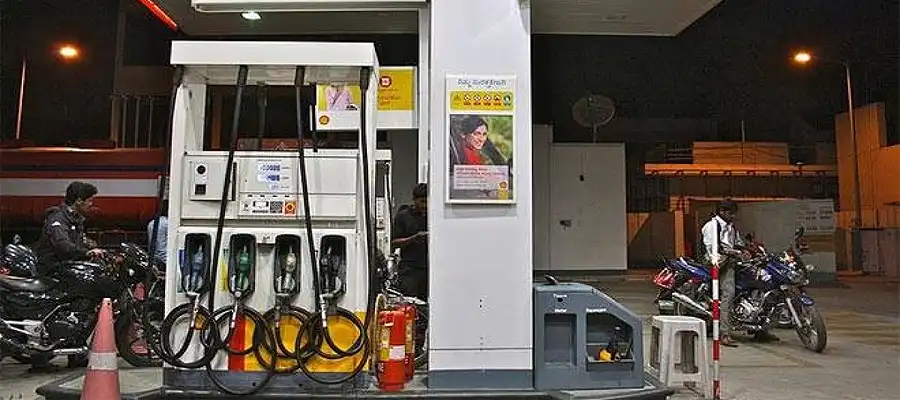The government on Monday announced that it has increased excise duty on petrol and diesel by Rs 2 per liter each with effect from Tuesday, but the two fuels won't be priced higher because oil prices have fallen in the international market.
The reduced crude prices will lower production costs for refining and marketing companies such as Indian Oil and Bharat Petroleum and increase their margins at the retail level. This will enable the government to garner more revenue from an increase in excise duty without increasing the burden on consumers.
"PSU oil marketing companies have come out with a statement that there will be no increase in petrol and diesel prices after today's hike imposed on excise duty rates," the Ministry of Petroleum and Natural Gas posted on X.
Excise duty has been increased on petrol to Rs 13 a liter and on diesel to Rs 10, under the directive.
The ruling is intended to bring in more revenues as the cost of crude oil has fallen to a four-year low in the global market, with the benchmark Brent crude falling to an all-time low of $63 a barrel—the lowest since April 2021 - and US West Texas Intermediate crude reaching $59.57. India, which is the 3rd largest crude importer in the world, will stand to gain as the cost of oil has fallen.
Oil prices also declined on Monday, losing close to 4 percent as rising tensions in trade between the United States and China triggered fear of a recession that would lead to a fall in the demand for crude, with the OPEC+ oil cartel also agreeing to increase supply.
Brent futures declined $2.43, or 3.7 percent, to $63.15 a barrel, and US West Texas Intermediate crude futures were down 3.9 percent, at $59.57.
The world's top oil exporter, Saudi Arabia, reduced crude oil prices for Asian customers in May by up to $2.3 per barrel on Sunday.
The decline in oil prices is a boon for the Indian economy, as the nation imports around 85 percent of its crude requirement, and any decline in oil prices causes a reduction in the country's import bill. This again leads to lowering the current account deficit (CAD) and strengthening the rupee.
Apart from improving the external balance of the country, a decline in petroleum products also reduces the domestic prices of petrol, diesel, and LPG, making inflation in the country comparatively simple.
The government has also helped reduce the country's oil import bill by allowing the oil companies to buy Russian crude at a discounted price despite Western pressures amid the Ukraine conflict. The Narendra Modi government has been firm in maintaining its relationship with Russia despite sanctions imposed on Moscow by the USA and Europe.
Russia has now become India's largest supplier of crude oil, replacing Iraq and Saudi Arabia, which had dominated the position to date. India has emerged as the largest buyer of Russia's seaborne crude, which accounted for almost 38 percent of India's total oil imports.
